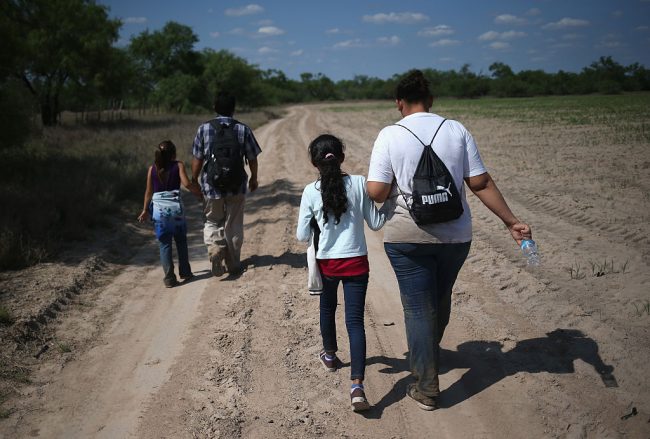The number of asylum claims made by Mexican nationals in Canada this year is already nearly four times the total of all claims made in 2016, a parliamentary committee was told Tuesday.

In a written response to a question from the House of Commons standing committee on citizenship and immigration, officials revealed that the number of claims so far in 2017 stands at 946. The total for all of 2016 was around 250, and in 2015 it was 111.
The federal government lifted the visa requirement for Mexican nationals wishing to enter Canada last December. When he first announced the change, Prime Minister Justin Trudeau argued that it would “make it easier for our Mexican friends to visit Canada while growing our local economies and strengthening our communities.”
In a statement on Tuesday, a spokesperson for Immigration Minister Ahmed Hussen said it’s too early to identify any potential trends.
“There has been an increased number of Mexican nationals who are making asylum claims in Canada since the visa lift, however this increase was anticipated,” wrote Hursh Jaswal.
“More time and data are required to fully assess the situation and we will continue to carefully monitor it.”

Get daily National news
Ottawa is also coordinating with the Mexican government, he added, to deter irregular migration and bolster “cooperation on travel document integrity and traveller screening.”
But the opposition Conservatives have long expressed concerns that lifting the visa requirement would result in a spike in asylum claims from Mexican nationals who travel to Canada, at a time when the system is already under significant strain.
READ MORE: Ottawa approves $12M extra funding due to ‘pressures’ of Mexican visa lift
The visa requirement was initially put in place in 2009 under the Conservative government after Mexico became Canada’s top source of refugee claimants, although one intelligence report said a “large proportion” were economic migrants not in need of Canada’s protection.
There were some early indications in March that the overall number of asylum claims from Mexico in 2017 were, in fact, already going up. The new number presented to the committee on Tuesday represents the total as of Sept. 27, and shows a clear and steady increase, said Conservative immigration critic Michelle Rempel.
“They lifted (the visa requirement) without a formal review, the numbers are once again increasing,” Rempel said following the committee meeting.
“At what point is the government going to reinstate the visa requirement? I also want to know what assurances they got from the Mexican government to make sure that this wasn’t going to happen.”
READ MORE: What are the steps for someone claiming refugee status in Canada?

Of the 946 claims so far in 2017, just 13 were made by Mexican nationals crossing the border illegally. The rest were made inland or at an official point of entry to Canada.
In 2008, the year before the visa requirement was implemented, there were 9,400 asylum claims made by Mexican nationals, 10 times the number seen so far this year. Former prime minister Stephen Harper expressed a wish to lift the requirement in the years before he left office, but he never followed through — in spite of obvious anger from the Mexican government.
But Rempel said it’s important to consider the broader context and new pressures on the immigration system.
“We’ve got thousands of claims that are being made for people that are crossing the U.S.-Canada land border at illegal points of entry, and people that are coming in from other parts of the world,” she said.
“These numbers haven’t been accounted for in the government’s projections.”
WATCH: Border officials brace for another spike in asylum seekers crossing into Canada

Documents made public earlier this year revealed that in 2016, border officials were also worried that the visa lift would make it easier for Mexican criminals to enter the country.
That fear has been partly backed up by the numbers. Midway through 2017, the Canada Border Services Agency had already identified 65 Mexican nationals it said were involved in “serious” crimes. Last year’s figure was 53, and the year before it was 28.
— With files from Stewart Bell


Comments